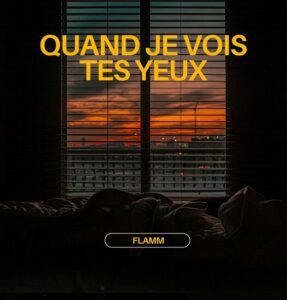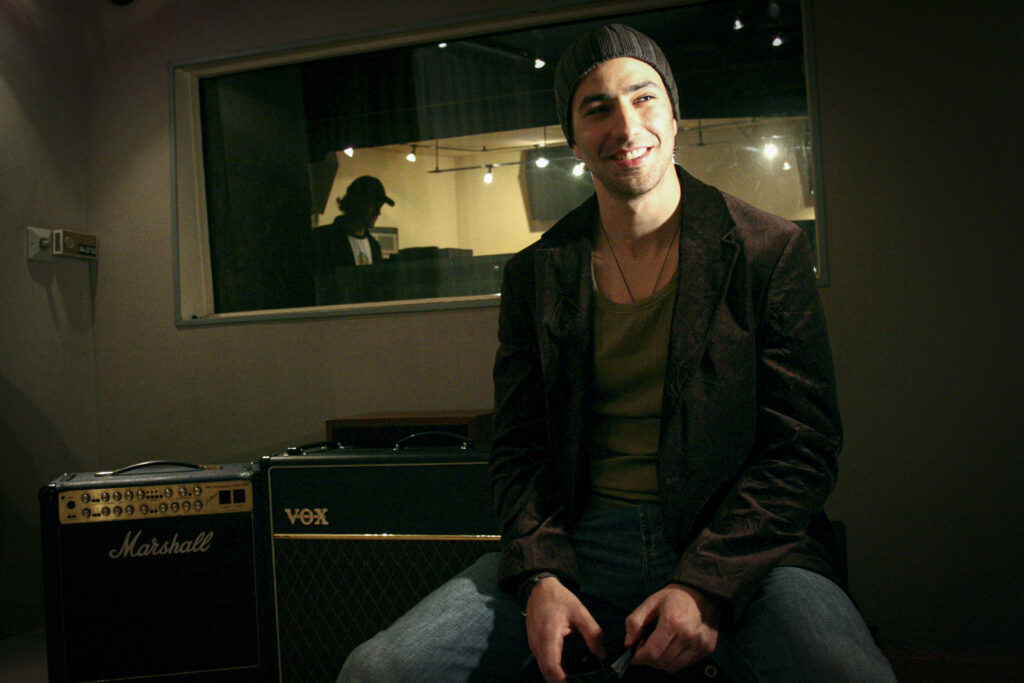Michael Moreno – FLAMM
FLaMM
Last release
Quand je vois tes yeux


Michael Moreno – “Flamm”
Artist, author, composer and performer
Biography
Michael: An Inspiring Musical Journey
At the age of 8, Michael discovered music through drum lessons. Later, his studies in audiovisual led him to develop a passion for film music, a field that inspired him to make it his career.
From his first band, Michael was in charge of composition. He began by recording on a 4-track tape recorder before gradually moving to computer and sampler production. This was the era of demos and his first studio sessions. After several concerts at youth clubs in the Paris region, he decided to move to New York to immerse himself in the roots of the soul and jazz music he loved so much.
New York immersion and musical development
Upon his arrival, Michael enrolled at the Brooklyn Conservatory of Music to perfect his vocal technique and piano playing, while also training in gospel harmonies. He regularly performed on jazz stages, performing standards and participating in open mics in New York clubs.
Inspired by the city’s vibrant atmosphere, he worked on new demos in collaboration with Phil Lees of the famous R&B group Blackstreet. With this American experience under his belt, he returned to Paris after a year and performed a string of concerts at iconic venues: the Triptyque, the Gibus, the Bateau Phare, the Galerie, and the legendary New Morning. He also reached the semifinals of the Emergenza competition.
On stage, whether solo, accompanied by a pianist, or a band, he performs his own compositions as well as covers.
Various collaborations and debuts in musical production
While developing his stage presence, Michael was in demand by artists from diverse musical backgrounds. He notably lent his voice to Parisian DJs for house productions, composed music for commercials and short films, and continued his studies at BEPA, a renowned jazz school in Paris.
During a competition organized by a major French radio station, he won the opportunity to sing a duet with Jesse McCartney on stage at La Cartonnerie in Reims. That same year, he met producer Fred Juarez (EMI), with whom he recorded “Pour Exister,” the theme song for the Disney film The Biggest Fan.
A first album and a decisive turning point
In 2008, enriched by all these experiences, Michael self-produced his first album. He surrounded himself with professionals such as Laszlo Jones (AZ Universal), Michael Buyens, and singer Stefan Filey. A new tour of France followed, marked by a key encounter with artist Magali Kourkine. Together, they performed “Allez Viens” on stage, a song that deeply moved the audience.
The song caught the attention of producer Levon Sayan (Aznavour), who decided to promote it. Produced by Yvan Cassar (Johnny Hallyday, Mylène Farmer) and directed by Olivier Dahan (La Môme, Mozart Opéra Rock), the track attracted the interest of record labels, some of whom even attended his live performances.
Michael then signed with the Belgian label BK3, with an eye on an album for Warner, but the project never materialized. He then chose to go on an acoustic tour across Europe, notably playing at the Munich Film Festival in 2017.
New horizons and transmission of knowledge
After producing his first English-language EP in Sweden, the COVID-19 pandemic disrupted his plans. He then moved to Barcelona, where he worked in the studio while continuing to write his next album. At the same time, he began giving singing, piano, and composition lessons.
Back in France, he joined the prestigious Dalida Institute – École de la Voix (Voice School) year-round, as well as the Atelier 13520 association, where he serves as a singing teacher, vocal coach, and songwriting and composition instructor. He coaches 130 students per year and organizes 20 concerts and shows.
At the same time, Michael launched the “Aria Nova Session” concept, a Songwriting Camp designed to teach the art of composition through workshops. He also became Artistic Director of the La Bonbonnière Prod studio, where he supports artists in their artistic development. Today, while composing for others, he continues to create for himself, convinced that this duality is essential to progress and constantly reinvent oneself.